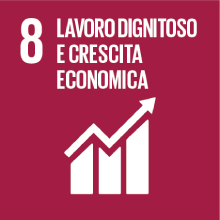COMPARATIVE BUSINESS HISTORY
- Anno accademico
- 2020/2021 Programmi anni precedenti
- Titolo corso in inglese
- COMPARATIVE BUSINESS HISTORY
- Codice insegnamento
- EM6059 (AF:317979 AR:170970)
- Lingua di insegnamento
- Inglese
- Modalità
- In presenza
- Crediti formativi universitari
- 6
- Livello laurea
- Laurea magistrale (DM270)
- Settore scientifico disciplinare
- SECS-P/12
- Periodo
- 1° Periodo
- Anno corso
- 2
- Sede
- VENEZIA
- Spazio Moodle
- Link allo spazio del corso
Inquadramento dell'insegnamento nel percorso del corso di studio
Il corso mira a familiarizzare gli studenti con il dibattito scientifico in storia dell'impresa; a offrire una contestualizzazione storica alle principali teorie manageriali; a mostrare agli studenti i limiti posti dal contesto storico all'applicazione delle stesse.
Risultati di apprendimento attesi
Capacità di utilizzare conoscenze acquisite
Gli studenti sapranno distinguere le caratteristiche dell'impresa nelle determinate epoche storiche; saranno in grado di padroneggiare i principali approcci alla storia dell'impresa, saranno capaci di comprendere come e quando un approccio storico può contribuire a meglio inquadrare i problemi manageriali.
Capacità di giudizio:
Gli studenti sapranno riconoscere le caratteristiche delle imprese in determinati periodi storici e le peculiarità dell'interazione tra imprese e contesto storico e istituzionale.
Capacità di comunicazione:
Gli studenti saranno in grado di presentare in pubblico criticamente casi di impresa e ricerche storiche.
Capacità di apprendimento:
Gli studenti saranno in grado di orientarsi criticamente in un testo storico e avranno nozione di cosa possano trovare in un archivio storico aziendale
Prerequisiti
Contenuti
1 – Course Introduction: what is business history?
2 – Why past matters? International Business and Business History?
3 – Discussing the uses of the Past in Management and Organizational Studies
Week 2. The historical evolution of the firm
4 – Preindustrial manufacturing
5 – Case study
6 – The enterprise and the First Industrial Revolution
Week 3. The emergence of the large enterprise and managerial capitalism
7- The Second Industrial Revolution and national patterns
8 – From multiunit enterprises to multidivisionals
9 – Case Study: GM
Week 4. The Cold War: the age of “shrinking spaces”
10 – The third industrial revolution
11 – New forms of enterprise
12 – Case study: Benetton; Case study: computer industry )
Week 5. Multinationals and global capitalism
13 – Why adopting a global perspective?
14 – The Emerging markets
15 – Case Study: Oligarchs in Post- Soviet Russia
Expected readings: Amatori Colli, part V; articles (Powell, Favero, Baldwin)
Questions:
Testi di riferimento
Amatori F. & Colli A., 2011, Business History: Complexities and Comparisons, London: Routledge 2011, 272 pp. ISBN: 978-0415423977.
Articles (compulsory)
Gareth Austin, Carlos Dávila, and Geoffrey Jones, "The alternative business history: business in emerging markets," Business History Review, 91, no. 3 (2017).
Baldwin, Carliss Y. "Explaining the Vertical-to-Horizontal Transition in the Computer Industry." Harvard Business School Working Paper, No. 17-084, March 2017.
Epstein Stephen R., 1998, Craft guilds, apprenticeship and technological change in preindustrial Europe, Journal of Economic History, 58(3): 684-713.
Favero Giovanni, 2006, Old and new ceramics: Manufacturers, products and markets in the Venetian State (17th-18th centuries), in P. Lanaro (ed.), At the center of the Old World: Trade and manufacturing in Venice and the Venetian Mainland, Toronto: Centre for Renaissance and Reformation Studies, pp. 271-315.
Favero Giovanni, 2006, Benetton: Identifying an Image, Imagining an Identity, Università Ca' Foscari Venezia, Dipartimento di Scienze Economiche, 06/WP/2006, pp. 1-9.
Jones, Geoffrey, Khanna, T. Bringing history (back) into international business. J Int Bus Stud 37, 453–468 (2006). https://doi.org/10.1057/palgrave.jibs.8400198
Jones, Geoffrey. Business History, the Great Divergence and the Great Convergence." Harvard Business School Working Paper, No. 18-004, July 2017.
Jones, Geoffrey, Rachael Comunale, and Kate Lazaroff-Puck. "Boris Berezovsky, Vladimir Putin and the Russian Oligarchs." Harvard Business School Case 317-005, March 2017. (Revised December 2019.)
Marchand Roland. The Corporation nobody knew. Bruce Barton, Alfred Sloan, and the founding of the General Motors "family'. Business History Review 65(4), 1991: 825-75
McCloskey D.N. & Sandberg L.G., 1972, From damnation to redemption: Judgements on the late Victorian entrepreneur, Explorations in Economic History, 9: 89-108.
Mokyr, Joel, Entrepreneurship and the Industrial Revolution in Britain in William J. Baumol, David S. Landes, and Joel Mokyr, eds., Entrepreneurs and Entrepreneurship in Economic history, Princeton: Princeton University Press, 2008.
Wadhwani, R. Daniel and Jones, Geoffrey Gareth, Historical Change and the Competitive Advantage of Firms: Explicating The 'Dynamics' in the Dynamic Capabilities Framework (December 9, 2016).
Williamson Oliver E., 1981, The Modern Corporation: Origins, Evolution, Attributes, Journal of Economic Literature, 19 (4): 1537-68.
Modalità di verifica dell'apprendimento
Modalità di esame
Metodi didattici
Altre informazioni
Obiettivi Agenda 2030 per lo sviluppo sostenibile
Questo insegnamento tratta argomenti connessi alla macroarea "Economia circolare, innovazione, lavoro" e concorre alla realizzazione dei relativi obiettivi ONU dell'Agenda 2030 per lo Sviluppo Sostenibile


